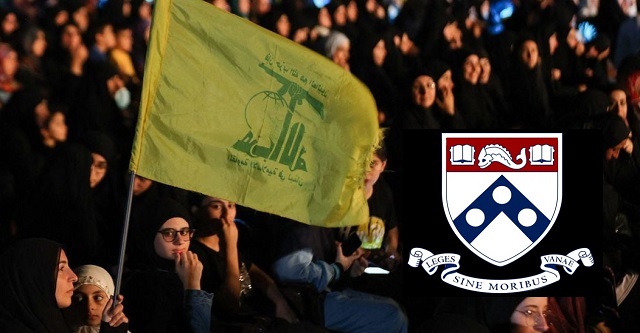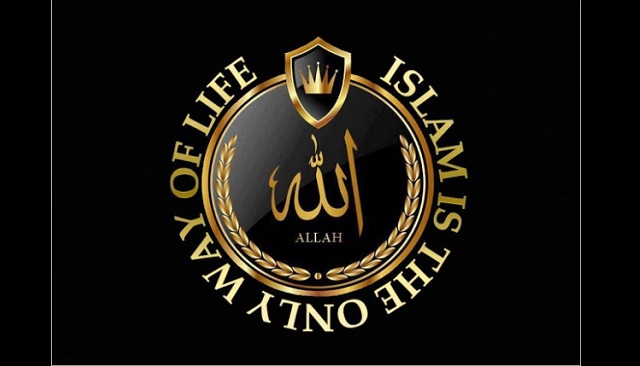Elite University Hosting Biden Center Took Money From School That Settled With US Gov’t Over Alleged Hezbollah Ties

The University of Pennsylvania, which hosts the Penn Biden Center, took hundreds of thousands of dollars from the American University of Beirut (AUB) in 2022, roughly five years after AUB paid a settlement to the United States government in connection with its alleged ties to Hezbollah, a U.S.-designated terror organization.
UPenn received $474,947 from AUB in 2022, with the donations earmarked as “Education/Tuition/Scholarship,” according to a 2021-2022 foreign gift disclosure obtained via a Freedom of Information Act request. AUB settled a lawsuit with the U.S. Attorney’s Office in Manhattan, paying $700,000 and promising to revise its policies, following a suit alleging the university assisted organizations linked to Hezbollah, Reuters reported.
Hezbollah is an Iranian-backed terror organization that has attacked U.S. and Israeli embassies, was implicated in the assignation of a Lebanese prime minister and has carried out suicide bombings, according to the Council on Foreign Relations. The United States designated Hamas as a foreign terrorist organization in 1997, according to the State Department.
Federal prosecutors said that AUB admitted to training members of al Nour Radio and al Manar TV, media outlets designated by the U.S. Treasury Department as branches of Hezbollah in 2006. “Al Manar and al Nour are the media arms of the Hizballah terrorist network and have facilitated Hizballah’s activities,” a press release from the Treasury Department reads.
“Hizballah” is an alternative way to transliterate “Hezbollah.”
The media organizations solicited donations for Hezbollah, aided in the terrorist group’s recruitment efforts and had their budgets managed and overseen by the secretary general of Hezbollah, according to the Treasury Department.
Prosecutors also said that AUB connected students to Jihad al-Binaa, a construction company the Treasury Department says was “formed and operated by Hizballah.”
AUB provided video production and blogging training to representatives of terrorist-linked groups alongside journalists, Reuters reported.
Some American universities have partnered with Israeli-designated terror organizations or had ties with Palestinian colleges that released pro-Hamas statements. Nonprofits financed by George Soros paid out millions to fund a partnership between Bard College and a Palestinian university that praised Hamas the day after the Oct. 7 terrorist attacks, law schools encouraged their students to work at organizations deemed to be terrorists by the Israeli government and Georgia State University cut ties with a college in the West Bank after the Daily Caller News Foundation reported on it praising deceased Hamas terrorists.
The University of Pennsylvania didn’t refer to Hamas as a terrorist group following the Oct. 7 terrorist attacks until after a prominent donor said his family would cut off financial support to the university.
UPenn received millions in donations from Chinese donors tied to Hunter Biden.
The Penn Biden Center, established on Feb. 8, 2018, in honor of now-President Joe Biden, exists to “convene world leaders, develop and advance smart policy, and strengthen the national debate for continued American global leadership in the 21st century,” according to its website.
While UPenn received money from Chinese donors linked to the president’s son and AUB, there is no way to know whether that money funded the Penn Biden Center.
The University of Pennsylvania and AUB did not respond to the DCNF’s requests for comment.
AUTHOR
ROBERT SCHMAD
Contributor.
RELATED ARTICLE: Hezbollah Calls For Day of ‘Unprecedented Anger’
RELATED POST ON X:
Here are those ‘innocent Gazans’ on October 7, parading the unconscious, young girl in the back of a truck, through their streets, while whacking her w pipes. pic.twitter.com/w3tSXFXaWV
— 🇺🇸ProudArmyBrat (@leslibless) November 3, 2023
EDITORS NOTE: This Daily Caller column is republished with permission. ©All rights reserved.
All content created by the Daily Caller News Foundation, an independent and nonpartisan newswire service, is available without charge to any legitimate news publisher that can provide a large audience. All republished articles must include our logo, our reporter’s byline and their DCNF affiliation. For any questions about our guidelines or partnering with us, please contact licensing@dailycallernewsfoundation.org.


